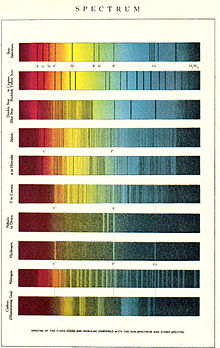The Most Difficult Field of Science, Ranked
Voting rules: Choose the field you think is the most difficult!

Updated on May 22, 2024 06:24
Choosing a scientific field to pursue can often be an overwhelming decision. Given the complexity and depth each area offers, anyone might wonder how challenging each field could be relative to another. This curiosity helps us form a clearer understanding of what might lie ahead for students, educators, and lifelong learners.
Here, we invite you to cast your vote on what you believe to be the most challenging fields of science. Your input is crucial in helping others gauge which fields demand the most effort and perseverance. By participating, you contribute to a broader community insight, assisting others in making informed decisions about their academic and professional journeys.
What Is the Most Difficult Field of Science?
-
153votes
Neuroscience
The scientific study of the nervous system.- Key Concept: Neuroplasticity
- Application: Brain-Computer Interfaces
In other topics- Position 3 in the ranking of the most difficult PhD
- Position 3 in the ranking of the most difficult thing to learn
- Position 1 in the ranking of the most difficult Master's degree
- Position 4 in the ranking of the most difficult class in school
- Position 8 in the ranking of the most difficult science to learn
- Position 9 in the ranking of the most difficult academic subject
- Position 1 in the ranking of the most advanced science
-
236votes
Theoretical Physics
The branch of physics that uses mathematical models and abstractions to explain and predict natural phenomena.- Key Concept: String Theory
- Application: Unified Field Theory
-
327votes
Quantum Mechanics
The branch of physics focusing on the behavior of particles at the quantum scale.- Key Concept: Superposition
- Application: Quantum Computing
In other topics- Position 5 in the ranking of the most difficult Master's degree
- Position 3 in the ranking of the most difficult aspect of physics
- Position 1 in the ranking of the most useful research
- Position 3 in the ranking of the most difficult concept to understand
- Position 1 in the ranking of the most popular theory compared to other theories
- Position 2 in the ranking of the most difficult branch of Physics
-
420votes
Astrophysics
The branch of astronomy that uses the principles of physics and chemistry to ascertain the nature of astronomical objects.- Key Concept: Black Holes
- Application: Exoplanet Discovery
-
54votes
Genetics
The study of genes, genetic variation, and heredity in living organisms.- Key Concept: DNA Replication
- Application: Gene Therapy
-
60votes
Quantum Field Theory
A theoretical framework for constructing quantum mechanical models of subatomic particles in particle physics.- Key Concept: Gauge Symmetry
- Application: Standard Model of Particle Physics
-
70votes
Materials Science
An interdisciplinary field focusing on the design and discovery of new materials.- Key Concept: Nanotechnology
- Application: Biomaterials
-
80votes
Bioinformatics
The science of collecting and analyzing complex biological data such as genetic codes.- Key Concept: Genome Sequencing
- Application: Personalized Medicine
-
90votes
Computational Complexity Theory
A branch of the theory of computation in computer science that focuses on classifying computational problems according to their inherent difficulty.- Key Concept: NP-Completeness
- Application: Cryptography
In other topics -
10-1votes
Climatology
The scientific study of climate, scientifically defined as weather conditions averaged over a period of time.- Key Concept: Global Warming
- Application: Climate Change Mitigation
Missing your favorite field?
Graphs
Error: Failed to render graph
Discussion
No discussion started, be the first!
About this ranking
This is a community-based ranking of the most difficult field of science. We do our best to provide fair voting, but it is not intended to be exhaustive. So if you notice something or Field is missing, feel free to help improve the ranking!
Statistics
- 3584 views
- 140 votes
- 10 ranked items
Voting Rules
A participant may cast an up or down vote for each Field once every 24 hours. The rank of each Field is then calculated from the weighted sum of all up and down votes.
Trendings topics
Don't miss out on the currently trending topics of StrawPoll Rankings!
Additional Information
More about the Most Difficult Field of Science

Rank #1 for the most difficult field of science: Neuroscience (Source)
Science seeks to understand the universe. Some fields within it are more challenging than others. The complexity of a field often depends on various factors. One key factor is the level of abstraction involved. Fields that deal with abstract concepts can be hard to grasp. They require a deep understanding of theoretical frameworks.
Another factor is the amount of data needed. Some fields need vast amounts of data to draw conclusions. Collecting and analyzing this data can be a daunting task. It often requires advanced tools and techniques. Researchers must be skilled in using these tools.
The speed at which a field evolves also plays a role. Some fields change rapidly. New discoveries can make old theories obsolete. Keeping up with the latest developments is a constant challenge. Researchers must stay updated with the latest findings.
Interdisciplinary knowledge can add to the difficulty. Some fields require knowledge from multiple areas. Researchers must be proficient in several disciplines. They need to integrate this knowledge to solve complex problems.
The level of precision required can also make a field difficult. Some fields demand very precise measurements. Small errors can lead to incorrect conclusions. This requires meticulous attention to detail. Researchers must ensure their methods are accurate.
Theoretical complexity is another factor. Some fields involve complex mathematical models. Understanding these models requires advanced mathematical skills. Researchers must be adept at using these models to make predictions.
Funding and resources can also impact the difficulty of a field. Some fields require expensive equipment and materials. Securing funding can be a major hurdle. Without adequate resources, research can be slow and difficult.
Collaboration is often necessary in challenging fields. Researchers must work with others to share knowledge and resources. Effective communication is crucial. Misunderstandings can lead to errors and delays.
Ethical considerations can add another layer of complexity. Some fields deal with sensitive issues. Researchers must navigate ethical dilemmas. They must ensure their work adheres to ethical standards.
The societal impact of research can also be a factor. Some fields have significant implications for society. Researchers must consider the broader impact of their work. This can add pressure and complexity to their research.
In summary, the most difficult fields of science are shaped by various factors. Abstraction, data requirements, rapid evolution, interdisciplinary knowledge, precision, theoretical complexity, funding, collaboration, ethical considerations, and societal impact all play a role. Researchers in these fields face many challenges. They must be skilled, adaptable, and dedicated to advance knowledge in these areas.
Another factor is the amount of data needed. Some fields need vast amounts of data to draw conclusions. Collecting and analyzing this data can be a daunting task. It often requires advanced tools and techniques. Researchers must be skilled in using these tools.
The speed at which a field evolves also plays a role. Some fields change rapidly. New discoveries can make old theories obsolete. Keeping up with the latest developments is a constant challenge. Researchers must stay updated with the latest findings.
Interdisciplinary knowledge can add to the difficulty. Some fields require knowledge from multiple areas. Researchers must be proficient in several disciplines. They need to integrate this knowledge to solve complex problems.
The level of precision required can also make a field difficult. Some fields demand very precise measurements. Small errors can lead to incorrect conclusions. This requires meticulous attention to detail. Researchers must ensure their methods are accurate.
Theoretical complexity is another factor. Some fields involve complex mathematical models. Understanding these models requires advanced mathematical skills. Researchers must be adept at using these models to make predictions.
Funding and resources can also impact the difficulty of a field. Some fields require expensive equipment and materials. Securing funding can be a major hurdle. Without adequate resources, research can be slow and difficult.
Collaboration is often necessary in challenging fields. Researchers must work with others to share knowledge and resources. Effective communication is crucial. Misunderstandings can lead to errors and delays.
Ethical considerations can add another layer of complexity. Some fields deal with sensitive issues. Researchers must navigate ethical dilemmas. They must ensure their work adheres to ethical standards.
The societal impact of research can also be a factor. Some fields have significant implications for society. Researchers must consider the broader impact of their work. This can add pressure and complexity to their research.
In summary, the most difficult fields of science are shaped by various factors. Abstraction, data requirements, rapid evolution, interdisciplinary knowledge, precision, theoretical complexity, funding, collaboration, ethical considerations, and societal impact all play a role. Researchers in these fields face many challenges. They must be skilled, adaptable, and dedicated to advance knowledge in these areas.
Explore other rankings
Check out some of the other recommended rankings on StrawPoll and make your voice heard.









